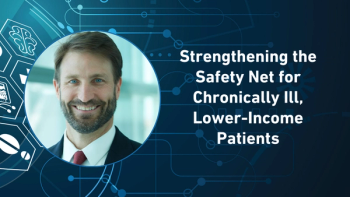
Pharma distribution adjusts to the coronavirus plague
The big question is how well will the system respond to spikes in demand, and lack of product
The Covid-19 crisis continues to be fast-moving and evolving; many statements or actions taken on one day are superseded by other developments on the next. One (small) consolation is that the experience of China, both the origin of the crisis and where its effects appear to be diminishing now, acts as a leading indicator of what will happen in Europe and US, where the contagion is still spreading.
Here are some of the adjustments pharma manufacturers and distributors are making, ranked from the less important to the most important (and sidestepping the development of actual treatments or vaccines for the virus): business travel and interaction; drug distribution; drug supply.
Business travel and interaction
Spring is traditionally one of the busier times of the year for industry conferences and expositions—and those event promoters are taking it on the chin as attendance drops by 30-50%. Just before it was to open, the HDA Distribution Management Conference, scheduled for San Diego on March 8-11, was cancelled. Another casualty is the Health and Personal Care Logistics Conference, scheduled for March 23-25 in Philadelphia. Both these meetings would have involved large numbers of the very people who are managing pharma supply chains through this crisis.
Earlier, the Informa Markets organization, which sponsors CPhI (pharma manufacturing) events globally, shifted its CPhI East Asia meeting from March 4-6 to 1-3 July (in Bangkok); its CPhI Japan meeting has been postponed to a later, undetermined date. At presstime, CPhI North America (Philadelphia, May 5-7) is proceeding as scheduled, as is Reed Exhibitions’ Interphex event (New York, Apr 28-30).
UPDATE: On March 10, Interphex was postponed to a later date.
It was significant news when the HIMSS annual expo (Orlando, March 9-12) was cancelled outright. “Cancellation is unavoidable in order to meet HIMSS’ obligation to protect the health and safety of the global HIMSS community, employees and local residents, as well as for the healthcare providers tasked with keeping our U.S. and global communities healthy,” said the event sponsors—noting that life sciences-related meetings have the double whammy of involving the very people who respond to health emergencies. HIMSS, which had been expected to draw 45,000 attendees, is the premier event for healthcare IT, from manufacturing to healthcare administration.
Meanwhile, the Parenteral Drug Assn. has announced that its annual meeting is being postponed from March 30-April 1 to July 20-22 in Raleigh, NC, along with some satellite PDA meetings.
The BIO organization, sponsors of the massive, global BIO International Convention (San Diego, June 8-11), is on the bubble right now—the sponsors are “closely monitoring” the situation, but are “optimistic that our biotechnology industry event can be part of improving human health.” Likewise, the Assembia event, which draws around 7,000 industry execs involved in pharma distribution, is proceeding as scheduled (Las Vegas, May 3-7), for now.
IT to the rescue
Some novel IT offerings—both of which have been available well before the crisis—have been tweaked for industry travelers. Evermed, a New York healthcare media company that has existing relationships with many medical societies, has prepared a “emergency Conference Response Strategy” to streamline the presentation of their meetings in an online, streaming format, via a “conference virtualization kit.” The company says that “the very type of knowledge sharing that may ultimately stop COVID-19 and its many successors is at risk of not occurring due to the virus.”
Veeva, a market leader in CRM for pharma sales reps, announced a new policy for its customers in China: sales reps would be able to use Veeva Engage Meeting to connect with healthcare providers at no charge for the next six months. Engage Meeting enables compliant communications between reps and HCPs, including video and shared content. As is widely recognized, travel has been extremely restricted in Wuhan province and elsewhere; nevertheless, there can be important information to convey to HCPs during the crisis. Over 10,000 workers turned on Engage Meeting as of early March, says Paul Shawah, SVP, commercial strategy, and the company is contemplating providing the service in other parts of the world as the crisis expands. “This idea came from our field teams,” he says, “and we decided to adopt it even though it represents a financial hit to the company.”
Pharma supply chains
It has been widely reported that global supply chains are being heavily stressed, especially those that depend on Chinese suppliers—who happen to be the world’s leading suppliers of APIs for pharma formulations. As yet, however, FDA has recognized only one instance of a drug becoming in short supply in the US due to the crisis (bear in mind this is in a context where over 100 drugs were already in short supply, a continuation of a years-long problem in the US industry). By mid-March, there were reports of Chinese manufacturers getting their production lines back in motion.
The question then becomes, to what extent have US distributors and pharmacies provided for safety stock to cover over gaps in production—and that question remains to be resolved. Consumer and (to some extent) pharmacy purchasers will instinctively seek to hoard product when a shortage looms, but as past experience has shown in other supply disruptions, that very act artificially creates a shortage. HDA issued a statement that “distributors are working closely with federal and state health officials to facilitate timely information sharing and coordination, communicating with manufacturer partners for any impact to the supply chain, and maintaining active business continuity plans in the event of disruption to operations due to the coronavirus.” Communication—especially between parties that have drug supplies, and those that don’t—is critical to preventing panicked hoarding.
HDA’s mention of “business continuity planning” also highlights the role of supply chain managers in the crisis. It seems to be a revelation to most of the general business press, but distributors as well as manufacturers prepare continuity and backup plans for pharmaceuticals; many manufacturers, for example, have alternative suppliers set up, and distributors make a point of having multiple distribution sites that can go forward if an when a specific site cannot.
Newsletter
Stay ahead in the life sciences industry with Pharmaceutical Commerce, the latest news, trends, and strategies in drug distribution, commercialization, and market access.




